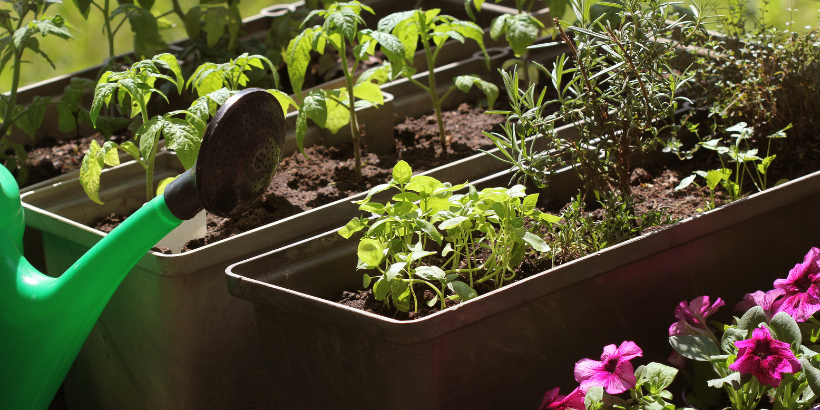Leading Gardening Techniques to Boost Plant Growth and Health And Wellness
Leading Gardening Techniques to Boost Plant Growth and Health And Wellness
Blog Article
Opening the Conveniences of Horticulture: A Detailed Look at the Different Types and Their Influence On Well-Being
Discovering the diverse advantages of gardening exposes a spectrum of techniques that considerably boost specific wellness. As we examine these varied gardening methods, it comes to be apparent that their impact can resonate on individual, social, and environmental degrees, motivating a more detailed look at exactly how these links develop a natural narrative of all natural health and wellness.
Sorts Of Horticulture

Blossom horticulture, an additional prominent category, stresses the visual appeal of grown blossoms. This type can boost landscapes and advertise biodiversity by attracting valuable pollinators. Herb horticulture includes expanding fragrant and culinary plants, adding both to food preparation and natural solutions.
Container gardening offers flexibility, enabling people with limited room to engage in horticulture by utilizing pots and planters. This method is specifically popular in city setups. Raised bed horticulture, on the other hand, entails producing raised plots that boost soil water drainage and availability, making it simpler for garden enthusiasts to manage their plants.
Last but not least, neighborhood gardening cultivates partnership amongst individuals in shared spaces, advertising social interaction and cumulative obligation. Each kind of horticulture offers unique objectives and satisfies various choices, making gardening a flexible task that can be tailored to private demands and environments.
Mental Health And Wellness Advantages
Involving in various kinds of horticulture not just produces tangible benefits such as fresh fruit and vegetables and attractive flowers however additionally provides considerable psychological health benefits. Study indicates that horticulture can be an effective tool for minimizing stress and anxiety, anxiety, and anxiety. The act of tending to plants and cultivating a garden promotes a feeling of objective and accomplishment, which can improve general psychological health.
Moreover, gardening urges mindfulness, as it calls for individuals to focus on today minute, whether it be planting seeds or nurturing growth. This mindfulness method can result in minimized rumination and boosted mood security. The exposure to native environments throughout gardening has likewise been linked to improved cognitive operating and decreased feelings of fatigue.
Social communication plays a critical duty in mental wellness, and neighborhood gardening campaigns give chances for individuals to connect with others, fostering a feeling of belonging. The shared experience of horticulture can cultivate friendships and assistance networks, further bolstering psychological strength.
Physical Health Advantages
Numerous people may not recognize that horticulture likewise provides considerable physical wellness benefits. Participating in gardening tasks needs why not check here a series of physical motions, including flexing, training, excavating, and planting, which collectively add to better toughness, adaptability, and endurance. These actions can enhance cardiovascular health and wellness by advertising a raised heart price, therefore minimizing the danger of cardiovascular disease.
In addition, horticulture can act as a moderate-intensity exercise, aiding individuals accomplish suggested physical activity degrees. Researches suggest that routine participation in gardening can melt considerable calories-- approximately 200-400 calories per hour, relying on the intensity of the jobs carried out. Such calorie expenditure is beneficial for weight monitoring and total metabolic wellness.
In addition, exposure to sunshine during horticulture can facilitate the synthesis of vitamin D, which plays a necessary duty in keeping bone health and sustaining immune feature. Moreover, the act of gardening commonly entails collaborating with soil, which has actually been connected to prospective mental and physical wellness benefits due to the visibility of beneficial bacteria. Gardening.
Social Links Through Gardening
The public facets of gardening foster significant social links among individuals. Area yards, in specific, function as lively centers where people from diverse histories collaborated, cultivating not only plants however additionally connections. These shared rooms encourage cooperation, allowing people to trade knowledge, skills, and resources, consequently improving their horticulture experience and promoting a feeling of belonging.
Interaction in horticulture tasks typically brings about the formation of friendships and assistance networks. Individuals regularly unify for common objectives, such as planting seasons, harvest events, or instructional workshops, which strengthen social ties and create a feeling of area. Such communications can relieve feelings of isolation and boost mental health, as people discover companionship and camaraderie in common ventures.

Environmental Impact of Horticulture
Gardening dramatically contributes to ecological sustainability in multiple ways. Home yards provide vital official source habitats for numerous types, including pollinators such as and butterflies, which are essential for ecological community health and wellness.

Additionally, gardens play an essential role in water conservation. Tactical landscapes, including native plants and xeriscaping, reduce water use and protect against runoff, thus protecting local waterways from air pollution.
Verdict

To conclude, gardening works as a multifaceted activity that improves wellness across different domains. The varied kinds of horticulture-- consisting of veggie, blossom, herb, container, and raised bed-- add to mental and physical wellness, foster social connections, and advertise environmental sustainability. By involving in horticulture practices, individuals can experience improved top quality of life while also supporting neighborhood bonds and eco-friendly wellness. Eventually, the alternative benefits of gardening emphasize its relevance as an essential component in boosting overall well-being.
Report this page